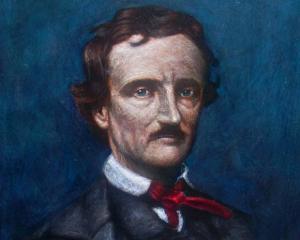A Doll’s House – opinion on Nora Helmer
From Act 1 in A Doll’s House, we can deduce that Nora Helmer is a very child-like character. Her relationship with her husband, Torvald and her children portray these characteristics. For example, after Ms Linde and Dr Rank leave their home and the children come back, Nora’s whole mood changes. She is no longer being secretive and all her attention is with her children. Everything they say, she listens carefully and with excitement. Even some of the activities that could have been slightly dangerous for them are dismissed by Nora’s curiosity. Since she herself can be considered a child, it seems logical that she is focused on the adventurous side of her children’s stories rather than worrying like a mother-figure would. Furthermore, when Nora holds the baby just before she is to be put to bed, she almost refuses to give her back to the nurse. This suggests stubbornness and selfishness in the sense that she wants to keep the baby to herself as if it was her possession, her doll. When looking at the adaptation of this scene, it is noticed that her possessive actions towards the baby are not intimidating as Torvald’s need for control, but rather playful as Nora does not like the idea of sharing what is hers; a characteristic often seen in a child. Also the fact that she’s running around, screaming and laughing portrays strong childlike characteristics, as her actions exactly match those of the children. This is heightened when surrounded by her children, as she is then in a familiar environment; an environment where she has the freedom to act in this manner without society’s and Torvald’s expectations overwhelming her.
Nora Helmer is also very easily distracted and seems to use these distractions to sway away from uncomfortable situations or negative thoughts. An example is her decorating and chattering at the end of Act 1. Here she uses the Christmas tree as an excuse to busy herself so that she isn’t forced to face what she has done. In the scene, Torvald is confronting her about seeing Krogstad leave the house and instead of facing her husband, Nora hides behind her decorations. She isn’t confident enough to take responsibility for her actions (a trait also seen in her discussion with Krogstad about the forged signature) or to face whatever consequence or judgement she might receive for it. In this case it is simply the fact that she lied about Krogstad. However when looking at Nora’s character throughout the whole of Act 1, it is noticeable that Nora is quick to jump from conversation to conversation and her lack of focus often helps her dismiss unpleasant situations. The specific example of the decorating and chattering at the end of Act 1 also suggests she is very occupied with the appearance of their home; she feels obliged to uphold the ‘perfect’ family image.

